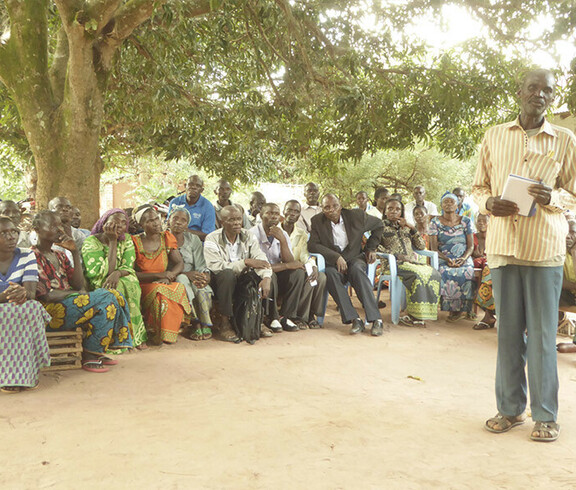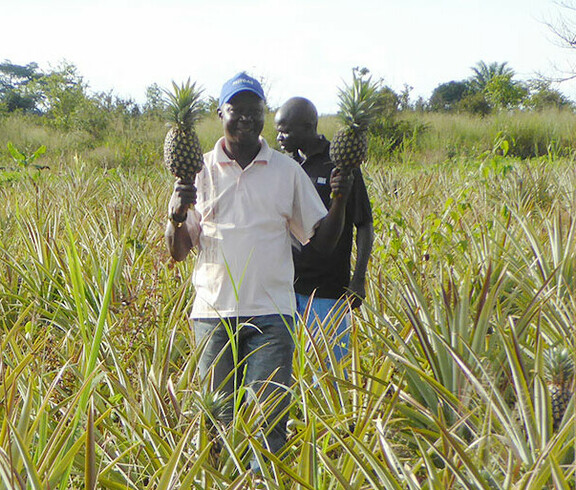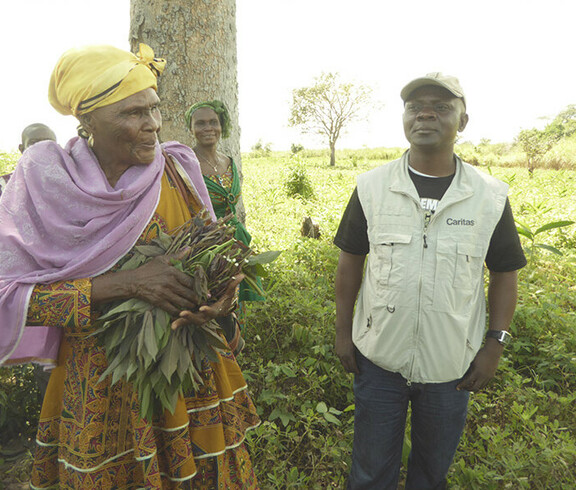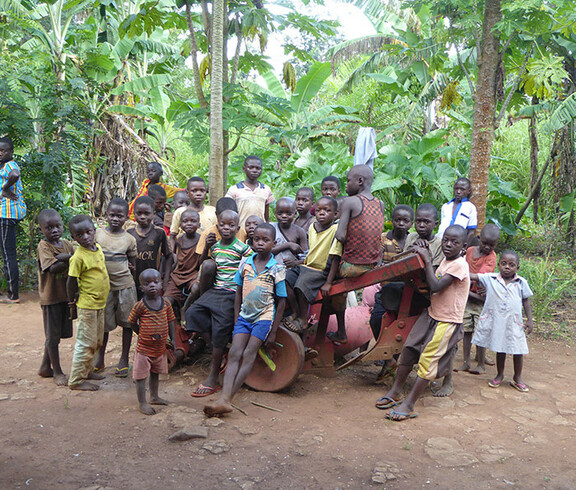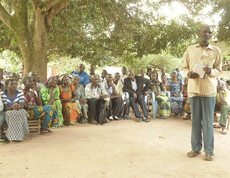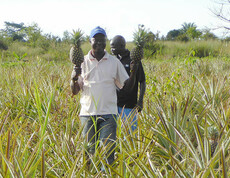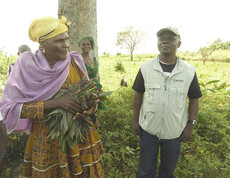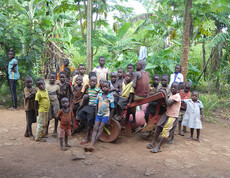PRASA - Regional Programme for food security
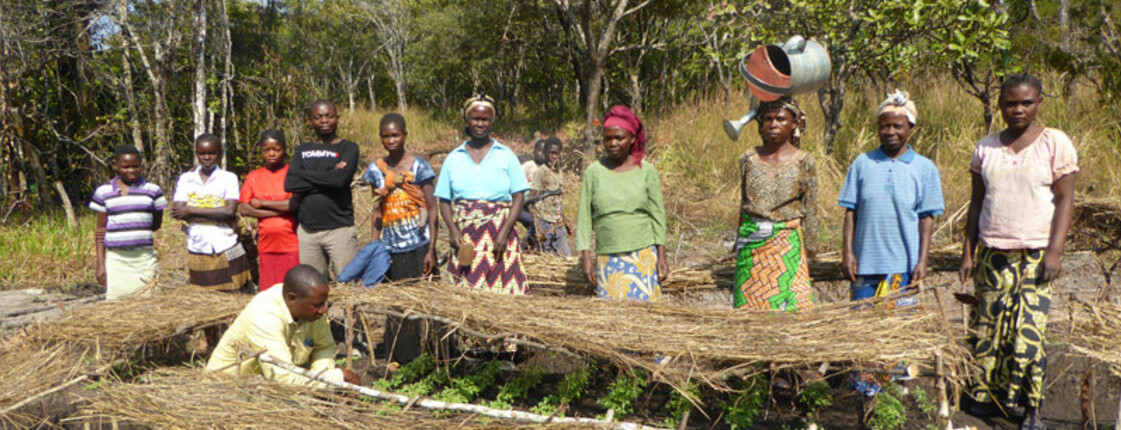
In the Democratic Republic of Congo, on an area larger than Austria, we have implemented a programme against hunger. Why on such a huge area? Because it works. It is a programme that is truly able to defeat hunger. In this way, we can save 5,000 families (27,000 individuals) from hunger and we can help them to provide for themselves.
Fight against starvation in the DR Congo
"We chased away hunger," says the chairman of UFF, an association of small farmers in the village of Kabongo gare. UFF stands for "L'union fait la force" (French for "Together we are strong"). He is currently speaking at the monthly association meeting, where they are discussing what is to be done during the next weeks in the fields. All members of UFF have learned what steps need to be taken to ensure that plants grow soy or maize, and how to provide a high yield so that the whole village is fed well.
The village of Kabongo gare is just one example of this effective food security programme called "PRASA". The abbreviation stands for the French "Programme Régional d'Appui à la Sécurité Alimentaire", which means” Regional Programme to Support Food Security”.
How our help against hunger works
We improve and "diversify" agriculture. Diversification means teaching local farmers how to grow more varieties on their fields. This reduces the risk of an entire crop failing. A total of around 5,000 families are supported.
We are helping with:
- Training in agricultural techniques such as composting, crop rotation, vegetable growing, livestock breeding, fruit growing
- Education measures in nutrition, income management and sustainable use of nature and resources
- Distribution of improved seeds, vegetable seeds, fruit tree seedlings and chickens and goats
Why do the people in the DR Congo need help at all?
Although the regions are very rich in natural resources, there is a high level of poverty among the local population due to the unequal distribution. The majority of them live from small-scale agriculture, fishing and livestock farming – which often cannot even cover the family's own needs. Food shortages, malnutrition and undernourishment are the result. Hardly anyone has investment opportunities or specific agricultural knowledge, and there is a lack of basic state structures. More than 90% of the population lives in chronic food insecurity.
The greatest challenges facing small farmers in the DR Congo
- Inefficient cultivation methods
- more difficult market access for their agricultural products
- Low income, which makes investment almost impossible
- Weak state structures
- High illiteracy (especially among women)
- More difficult access to clean drinking water and generally inadequate basic medical care in rural areas

Our goal: to end hunger completely/chase it away
In general, PRASA contributes to Goal 2 of the United Nations' Sustainable Development Goals (SDGs): "to end hunger, achieve food security and better nutrition and promote sustainable agriculture". The aim is to achieve a sustainable improvement in the nutritional situation of the households supported and their ability to manage themselves. Specifically, this means
1. The supported households improve their nutrition in sufficient quantity and quality.
2. The supported households have income to improve their living conditions.
3. Supported households improve the management and protection of their natural resources.
Improved agriculture also provides additional income
On the one hand, improved agriculture secures the family's food supply. On the other hand, they can also earn an additional income. We therefore teach them how best to sell their additional production, which exceeds their own needs. In order to strengthen the position of small farming families politically as well, the farmers receive information on land use rights, taxes and laws relating to agriculture, as well as legal advice if necessary.

Honorine Bamanisa tells how PRASA helps her
I am a widow and live with my six children near Nkundi, Democratic Republic of the Congo (DRC). I have a small farm. Thanks to Caritas training I have learned about new cultivation methods, fertilizers and crops. I have also received improved seeds. Instead of one hectare, I can now cultivate two hectares. This has allowed me to increase my harvest yield and I now sell rice, peanuts, soy, cassava and vegetables at the market in Nkundi. It is especially important to me that my children can go to school. With my income I can now pay their school fees. This makes me very proud and happy!
Contact
MMag. Silvia-Maria Wieser
Program Manager DR Kongo
